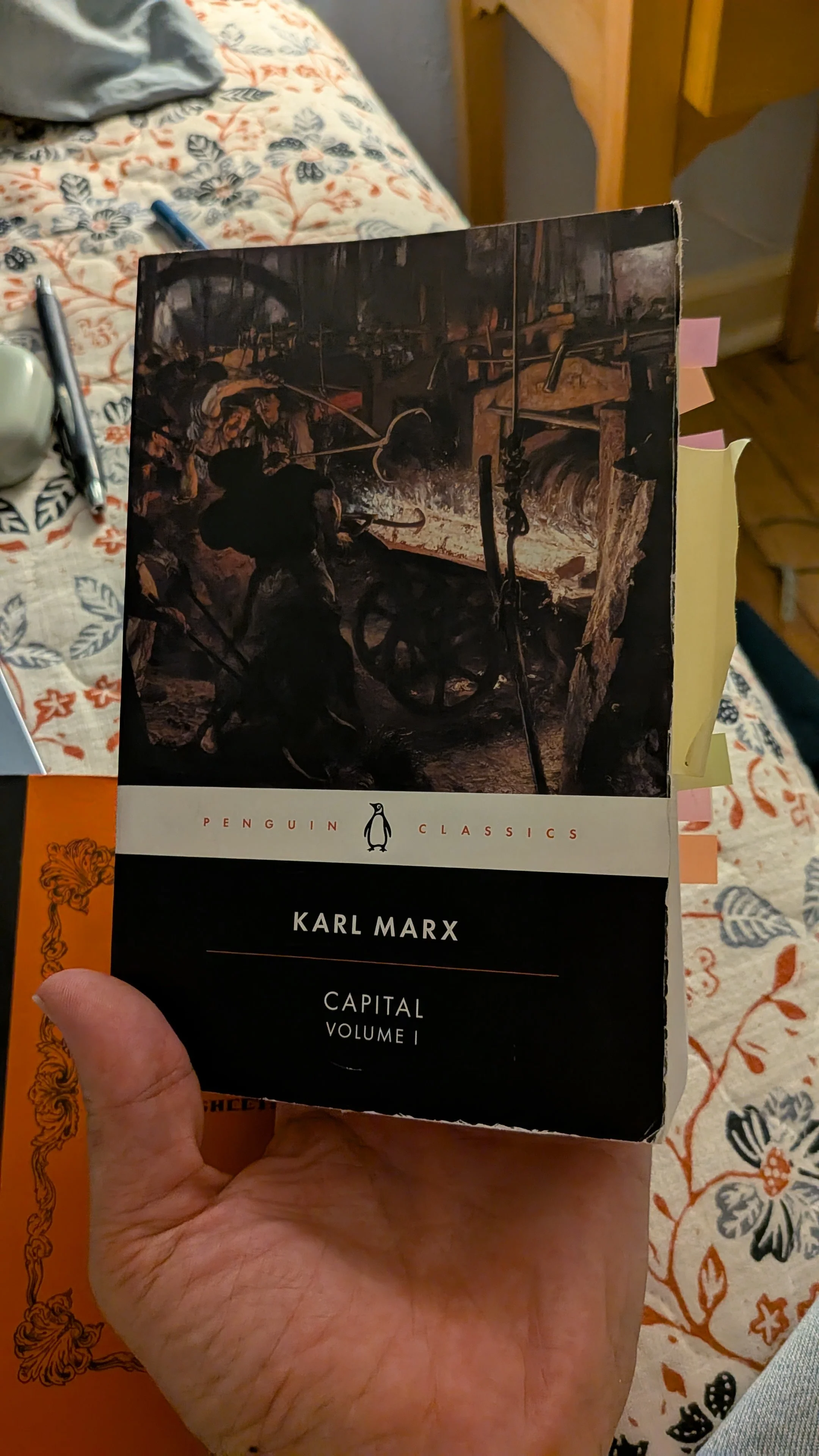CAPITAL vol. 1 - KARL MARX (trans. Ben Fowkes)
I set a goal this year to read Capital, all three parts, and I fear I might be a bit behind schedule to get it all down, especially given everything else I’ve got going on. Even with this first one, I read about half on a Kindle about 6 months ago, then bought a physical copy to finish up. But enough preamble, this book is predictably great. Communism and Marxism is so deeply buried under almost 200 years of propaganda and bullshit that it’s hard to remember that this guy actually wrote a book where he lays his ideas out and you can read this book instead of the endless braindead commentary that has accrued. Sadly, since he also wrote the short, polemical Communist Manifesto, people mostly just read that and claim they’ve “read Marx” (Jordan Peterson has made a whole career this way) but there isn’t really a substitute for Capital itself. And while it is massive and through it’s also insanely well written and captivating. Remember that peasants all over the world have read this thing and changed their lives and history. Now, there is the issue that this book is so through that parts of it, especially when he gets in his bag w/r/t the tables of specific economic data or goes on and on about British working conditions, it can be boring. He’s better to read on the more abstract issues and concepts than he is on the specifics of the world he lived in, but you can’t help but admire the level of work and detail that goes into these passages. This is the best book ever written about capitalism and how it works (even if you disagree with his prescriptions and predictions) and it’s foolish to think you can understand how the economy and politics works without it. It’s unbelievable that one guy wrote this over decades in exile, mostly in a library reading room in London, at the beginning of industrial capitalism. It’s so erudite and complex, full of quotes in half a dozen languages, biblical and literary references, smart and cool turns of phrase and passages, tables of economic data that he analyzes and a billion new ideas and concepts. We’re on the other end of the process he saw coming, the West and especially America, has largely de-industrialized and the international situation, economically, is several orders of magnitude more complex than it was when he came up with all of this. Yet, it is still quite relevant. The concepts he fleshes out, like the commodity or productive labor or surplus-value, all still make total sense and are invaluable if you’re trying to figure out what’s going on in the world. This is not to say he’s god or saw everything, you still need updates and different views on this stuff to make it all cohere. He was writing as a man in Europe during the middle/late 1800s, there’s a lot of stuff he missed, but even these critiques are building and fleshing out what he saw. In the USA communism is a Bête noire and not discussed or taken seriously at all, for obvious reasons, though since this next century belongs to China, a country that very much does take this stuff seriously, I can only imagine that his work is going to become more relevant. I’m excited for the other two volumes.
“The discovery of gold and silver in America, the extirpation, enslavement and entombment in the mines of the indigenous populations of that continent,the beginnings of the conquest and plunder of India, and the conversion of Africa into a preserve for the commercial hunting of blackskins, are all things which characterize the dawn of capitalist production.”
“It was the “strange god” who perched himself side by side with the old divinities of Europe on the altar, and one fine day threw them all overboard with a shove and a kick. It proclaimed the making of profits as the ultimate and sole purpose of mankind.”
